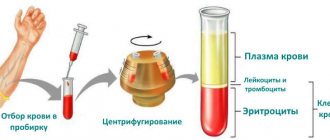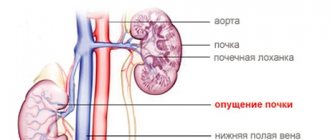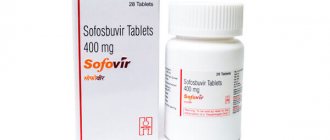Causes of salty taste in mouth
One of the most common causes of a salty taste in the mouth is dehydration. In order for the body to function smoothly, a person needs to receive at least two liters of fluid per day. Some people, especially in winter when it is not hot, limit themselves to 0.5 liters of water per day. And the chemical composition of saliva directly depends on the water-alkaline balance of the body. Lack of water causes the composition of saliva to change, and it becomes thick and viscous.
Otherwise, this sensation appears when a person takes diuretics to treat certain diseases or to lose weight. The composition of saliva also changes in this case, since the increased process of urine excretion leads to dehydration.
Possible pathologies
The presence of diseases can also lead to a salty taste in the mouth:
- In the treatment of oncological tumors, radiation and chemotherapy are used, in this case the taste buds are affected, and an unpleasant taste appears;
- If a person has chronic rhinitis, sinusitis, sinusitis or other nasopharyngeal diseases, an excess amount of mucus accumulates in the nasopharynx. It may cause an allergic reaction. In addition, if there is a lot of mucus, it begins to flow down the back wall of the nasopharynx and enters the mouth, which can also lead to the appearance of an unpleasant salty taste;
- Due to inflammation of the salivary glands caused by viral infections, saliva changes its chemical composition and taste;
- Tartar, which is formed due to insufficient hygiene procedures in the oral cavity, leads to a bacterial infection that affects the gums, teeth, and salivary glands. This also results in a salty taste.
Chemotherapy is a possible cause of a salty taste in the mouth
In addition to these listed reasons, the occurrence of a salty taste can be the cause of serious diseases, such as a brain tumor, epilepsy and others associated with disturbances in the functioning of the endocrine and nervous systems. In this case, it is necessary to consult a specialist doctor.
Quite rare cases of salty taste are cardiovascular pathologies:
- Stroke or heart attack;
- Thrombosis;
- Arterial hypertension.
Other reasons
It's no secret that tears are salty. In this case, tears can occur not only due to intensely experienced emotions, but also as a result of conjunctivitis or other viral infections of the eyes, as well as due to allergies, dust and wind. If there are a lot of tears, they can get into the oral cavity and change the taste of saliva.
Some medications can affect taste perception and change the chemical composition of saliva.
Other reasons for the appearance of a salty taste may be severe stress or nervous overexcitation. In this case, the mucous membrane of the mouth dries out, a cough may begin and, as a result, the taste changes.
Smoking, constant drinking of alcohol, uncomfortable posture for a long time - all this can cause intoxication, leads to a malfunction of brain activity and, again, to a malfunction of all nerve endings.
If there are disturbances in the liver, especially dysfunction of the pylorus, bile will enter the esophagus and give a bitter taste, especially in the morning.
This phenomenon often occurs in pregnant women whose taste perception is impaired, and food seems either overly sweet or very salty due to hormonal imbalance.
If you eat bland food but experience a salty taste, there may be contaminants or colorings in the food that are affecting your taste perception.
Disturbances in brain activity
With the development of pathologies in brain activity, disturbances occur in various organs and systems. If there are abnormalities in the brain, for example, tumor processes or epilepsy, such diseases may be accompanied by a salty taste on the lips and on the mucous membrane of the mouth.
But such a reason is very rare. Especially if there are no additional symptoms of possible pathologies. It is recommended to visit a doctor to find out the cause of the symptom, this will help to quickly eliminate it.
https://youtu.be/oV8WUsXAr-k
Source: tvoyzubnoy.ru
Features of clinical manifestations
Since the main cause of salty taste is dehydration, this is very easy to check. Go to the mirror and look at your tongue, it should be bright pink and wet. If your tongue is white-pink with a yellowish tint and looks dry, then you need to immediately replenish the lack of fluid in the body.
Please note that in this case you need to drink only water, neither tea nor anything else, especially carbonated drinks, will help solve your problem.
In men
Men may experience a salty taste after drinking heavily. Even low-alcohol drinks have a powerful diuretic effect, which means they lead to dehydration.
In this case, you need to drink as much water as possible to replenish its deficiency in the body.
Among women
The main reason for the appearance of a salty taste in the mouth of women is toxicosis during pregnancy. Due to toxicosis, the body becomes severely dehydrated.
A salty taste in the mouth in women may be due to hormonal changes.
And also, due to hormonal changes, women may experience dysgeusia at this time - this is a disturbance or disappearance of all kinds of taste sensations. EO may also result in a bitter-salty taste.
In children
In children, a salty taste in the mouth may occur as a result of poisoning and severe diarrhea. In this case, severe dehydration again occurs.
If a child has problems with the nervous system, he constantly cries, worries, then falls into aggression, then into apathy, then he may also have an unpleasant feeling in the mouth. In this case, it is necessary to consult a doctor in order to catch a possible disease at the very beginning.
Causes
Dry mouth
Along with the salty taste, there may be a papery taste and a pellet-like sensation in the mouth. These are symptoms of dry mouth (xerostomia). The condition can be caused by a variety of reasons, such as smoking tobacco or a side effect of a medication.
Symptoms of dry mouth:
- Stickiness in the mouth
- Thick or stringy saliva
- Bad breath
- Sore throat
- Hoarseness
- Grooved tongue
Dry mouth is easy to identify on your own. To solve the problem, drink plenty of water and avoid spicy and salty foods. To treat, you can rinse your mouth with over-the-counter medications that will stimulate saliva production.
Dehydration
Dehydration is one of the common causes of salty taste and dry mouth. It occurs suddenly or develops over time. Dehydration can occur after diarrhea or vomiting, vigorous exercise, or heat.
- Extreme thirst
- Less frequent urination
- Dark urine
- Fatigue
- Dizziness
- Confusion
Diagnostics
If the salty taste begins to appear constantly, then you should seek advice from your doctor in order to begin treatment if necessary.
The doctor will conduct the necessary examination: review the patient’s medical history, take into account all complaints, examine the oral cavity and nasopharynx, and also palpate the lymph nodes.
After this you will need to do the necessary tests:
- A complete blood and urine test to monitor the presence of infection and, if necessary, the degree of dehydration;
- Biochemical blood test for the presence of enzymes produced by the kidneys;
- Examination of mucous secretions will help determine the presence of an allergic reaction or viral infection;
- An x-ray of the maxillary sinuses will show the presence of an inflammatory process;
- An X-ray or ultrasound of the nose will indicate the condition of the nasal septum and its curvature;
- MRI or CT will indicate the condition of any tissue in micro-sections.
Only after receiving the test results, the patient is referred, if necessary, to a specialist for further treatment.
How to get rid of this?
To stop feeling salty in your mouth, and to ensure that nothing interferes with your enjoyment of your favorite foods and drinks, there are several steps you should take.
- The most important thing is to contact a specialist. Only a competent doctor will be able to find the real cause of this phenomenon and accurately determine what the root of the problem is, as well as prescribe the fastest and highest quality treatment;
- In addition, you need to take a close look at the products you consume. If fast food, spicy, fried and fatty foods predominate among them, then all this should definitely be excluded from the diet. Switching to eating healthy foods without flavorings will not only help you get rid of saltiness in your mouth, but will also have a beneficial effect on your health and quality of life;
- lovers of tea and coffee drinks will have to give them up in favor of clean water. The same should be done for those who drink a lot of juices and sodas. Fortunately, you don’t need to give up completely, but you will have to significantly reduce the number of drinks;
- pay close attention to oral hygiene.
Therapy methods
Since there are several reasons for the occurrence of an unpleasant salty taste in the mouth, there should be several ways to combat this problem.
If the cause was an imbalance of water balance, then it is necessary to establish a drinking regime and drink at least 2-2.5 liters of water per day. Moreover, it should be clean water without any impurities. As for the consumption of carbonated drinks, tea, coffee and, of course, alcohol, it is better to avoid them, as well as diuretics, since this will only worsen the situation.
If a developing infection is detected, the doctor will prescribe the necessary drug treatment, which, of course, is different for different groups of diseases. In particularly advanced cases, treatment can be carried out inpatiently.
Medications
If a salty taste appears as a result of taking medications, then you need to seek help from a doctor so that these drugs can be replaced with their analogues or other methods of treatment can be prescribed.
If a bacterial infection is detected in the oral cavity, you should seek help from a dentist. After treatment, the situation will improve and the unpleasant taste will disappear.
For viral diseases of the nasopharynx, you need to rinse it with saline solutions, and also use special vasoconstrictor and antiviral drops.
In case of viral diseases of the nasopharynx, it should be rinsed with saline solutions.
In case of inflammation of the tonsils, you need to use antiviral drugs, antibiotics and antiseptics, as well as gargle and rinse the nasopharynx.
In each individual case, special medications are needed, which should not be prescribed to yourself, but you should seek help from specialists who will prescribe the necessary treatment.
Folk remedies
In addition to medications, there are folk remedies for getting rid of the salty taste in the mouth, which will help remove mucus and phlegm and cope with the inflammatory process without resorting to pharmacology.
- If your maxillary sinuses often become inflamed, then you can put cotton swabs soaked in the juice of honey and beets, taken in equal parts, into your nose. Tampons do not need to be removed within a quarter of an hour; the procedure must be carried out every six hours;
- An anti-inflammatory mixture can be prepared for gargling the throat and nasopharynx. To do this, you will need 50 g of linden blossom, eucalyptus, chamomile and 20 g of flaxseed. Pour one spoonful of the dry mixture into a glass of boiling water, let it brew for 30 minutes, then strain and rinse three to four times a day;
- Since chronic tonsillitis also causes a bitter-salty taste, you can prepare a tincture of propolis and alcohol. Take 10 g of propolis and 100 g of alcohol, put it in a dark place for a week, and then 1 tsp. dilute in 100 g of warm water and gargle 3 times a day;
- To get rid of phlegm, you need 1 tbsp. Dried coltsfoot herb pour a glass of boiling water and close with a tight lid. After three hours, strain and drink 50 g half an hour before meals three times a day.
If you want to instantly get rid of the bitter-salty taste in your mouth, chew three or four roasted coffee beans, a leaf of parsley or celery, and if possible, a slice of lemon.
Prognosis and prevention of pathology
A salty taste in the mouth is not an independent pathology and can be easily eliminated by identifying and treating the cause that causes this phenomenon. By ignoring this seemingly trivial problem, which signals certain problems in the body, the patient can cause certain harm to his health:
- tooth decay due to an increased amount of bacteria in the oral cavity;
- decreased quality of life;
- constant discomfort, provoking the development of neurosis;
- loss of pleasure from eating;
- decreased appetite;
- weight loss;
- sleep disturbance, aggressiveness and irritability.
The result of a salty taste in the mouth can be loss of appetite and, as a result, weight loss
To prevent this unpleasant taste sensation, you need to follow simple rules:
- monitor oral hygiene, brush your teeth twice a day - morning and evening;
- visit the dentist at least 1-2 times a year;
- observe drinking regime;
- promptly treat infectious diseases of the nasopharynx, sinusitis, and ophthalmic infections.
Treatment
Many conditions that cause a salty taste in the mouth are easily treated if the underlying cause of the problem is discovered. Make an appointment with your doctor and name all the symptoms that accompany the salty taste in your mouth. If there are signs of infection, seek medical attention immediately.
A salty taste in the mouth is a fairly common manifestation that has no restrictions regarding age category and gender. In most cases, the occurrence of such a symptom is harmless, but at the same time it may indicate certain diseases, for example, dental or gastrointestinal diseases.
Depending on what was the source of such a symptom, the clinical picture and treatment tactics for eliminating such a symptom will differ. Only a specialist can determine the factors causing saltiness in the mouth, based on the results of laboratory and instrumental diagnostics. For this reason, you should not postpone a visit to the doctor and self-medicate, especially if the salty taste is constant and intense.
Which doctor should I contact? Diagnosis of possible pathologies
If an unpleasant symptom appears in the form of a feeling of salty saliva in the mouth, you must make an appointment with a dentist, otolaryngologist and therapist. The child should be examined by a pediatrician.
If necessary, the doctor may prescribe the following diagnostic methods:
- taking a smear from the mucous membrane of the mouth, tonsils and throat;
- ECG of the heart;
- Ultrasound of the liver, gallbladder, salivary glands;
- gastroscopy of the esophagus and stomach;
- MRI of the skull bones and directly the centers of the brain;
- donation of capillary and venous blood for clinical and biochemical analysis;
- collection of morning urine.
Based on the results of the diagnostic examination, the attending physician is able to determine the underlying type of disease that causes the sensation of salty saliva in the mouth. After diagnosis, the patient is prescribed appropriate therapy.











